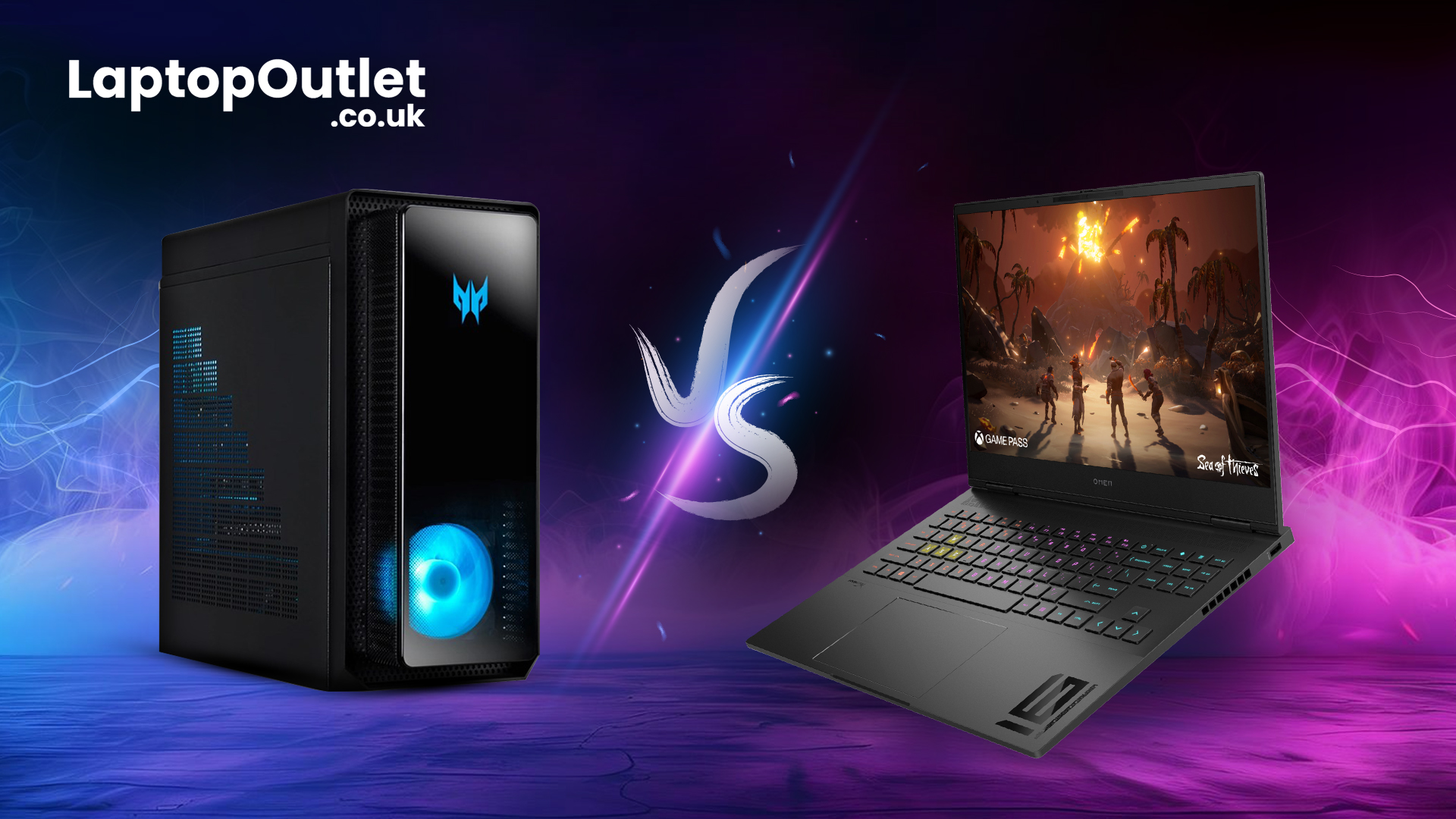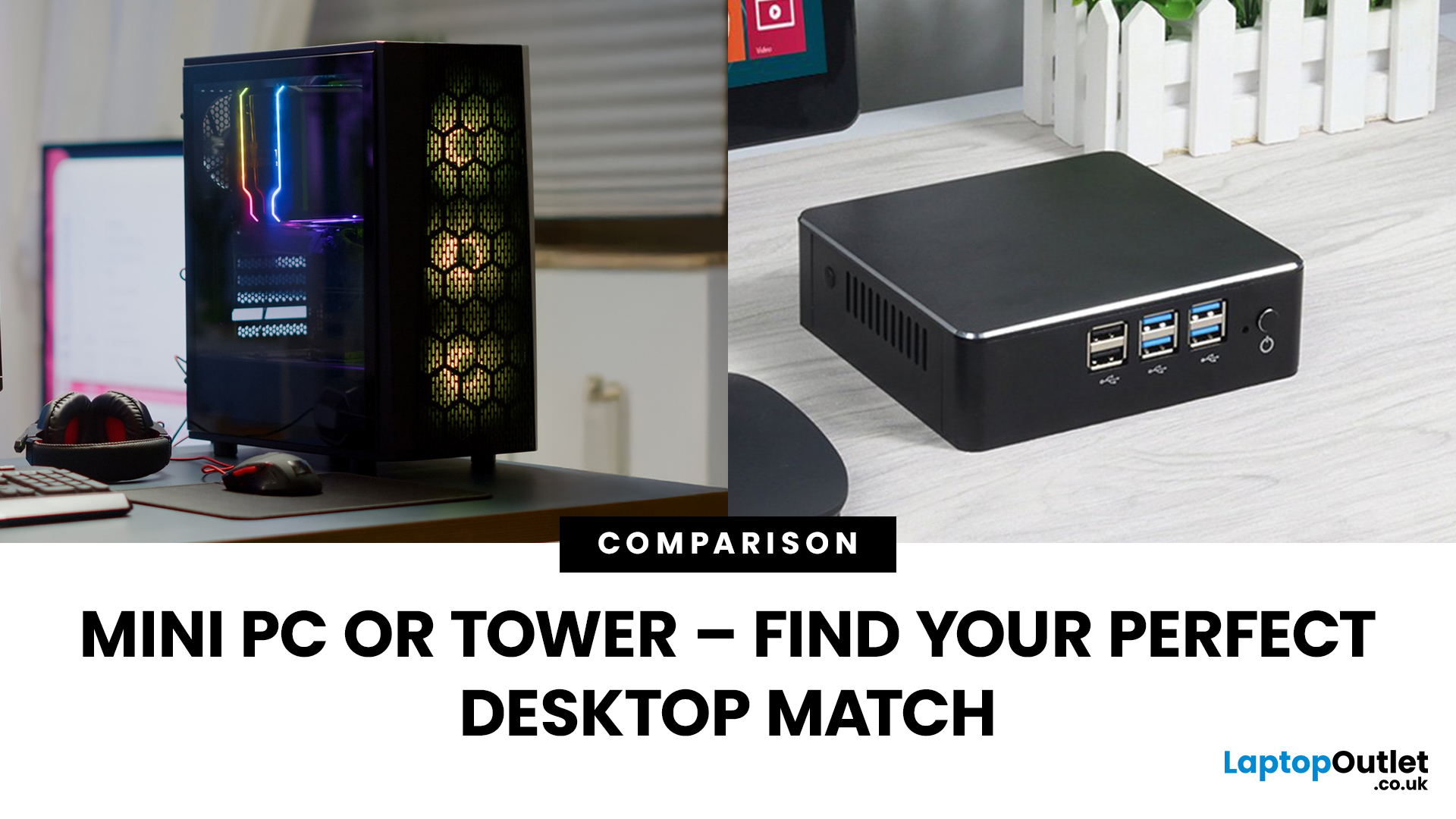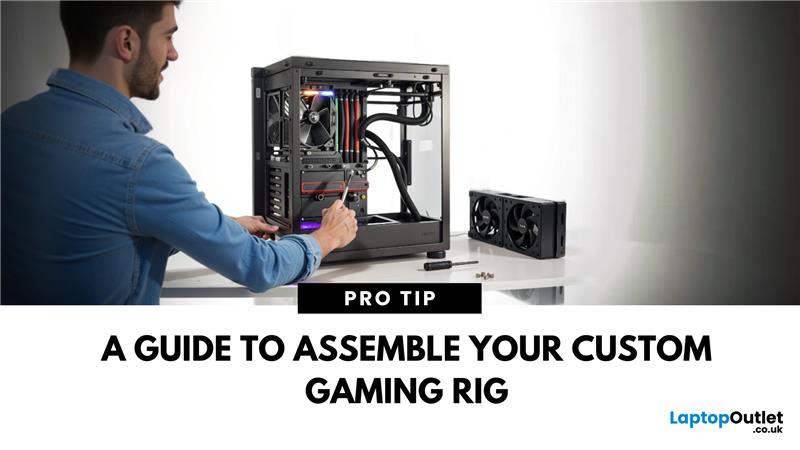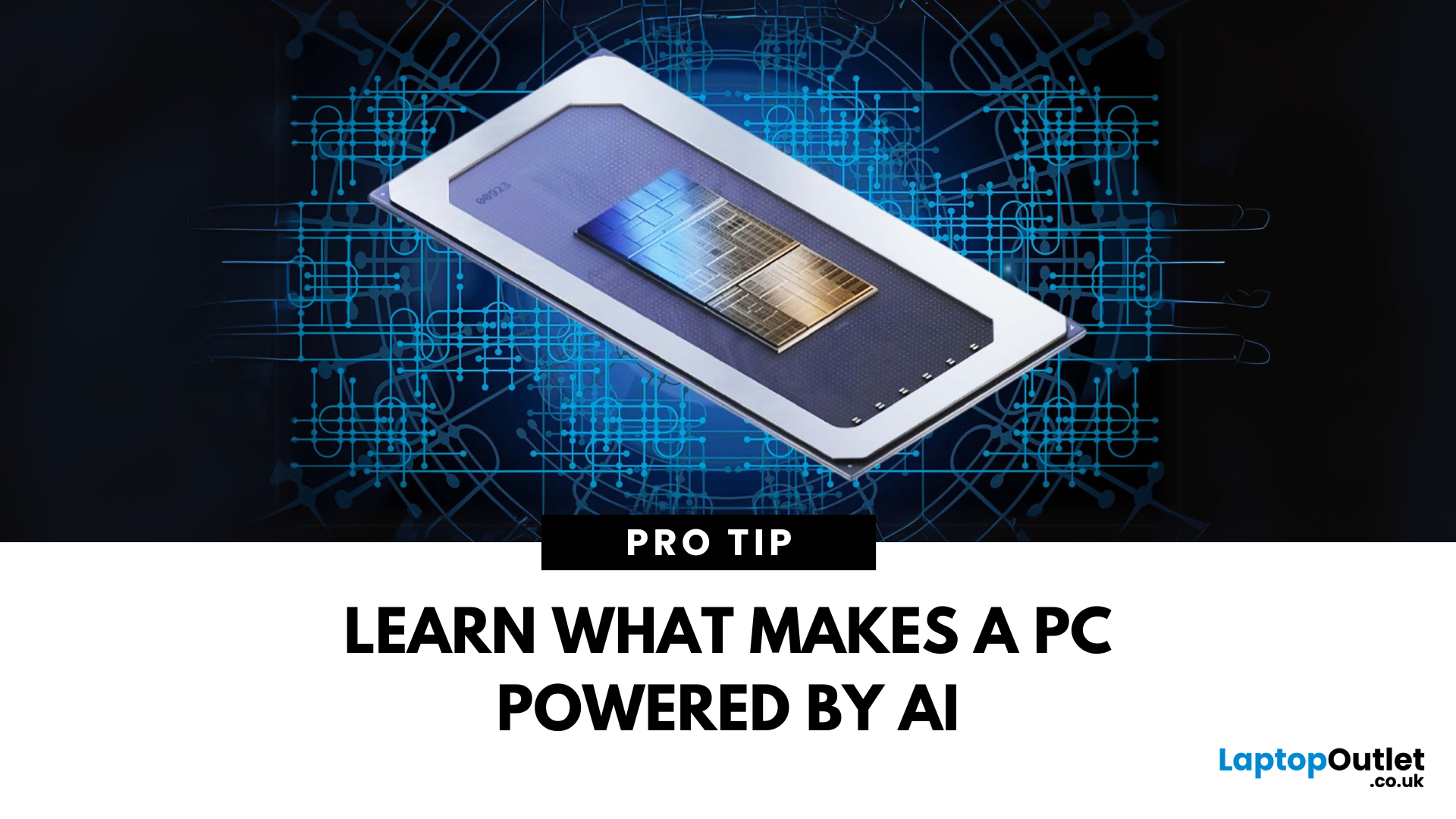How to Check Your PC Specs

Know What’s Inside Your Machine
Whether upgrading, troubleshooting, or just curious, it’s important to know your PC specs—including your CPU, RAM, GPU, and storage. Here’s how to quickly check your PC’s specifications on Windows.
Use System Settings (For Basic Specs)
Steps:
- Go to Settings > System > About
- Under Device specifications, you’ll see:
- Processor (CPU)
- Installed RAM
- System type (32-bit or 64-bit)
This section also includes your Windows edition and version
Use Task Manager (Quick View of Performance)
Steps:
- Press Ctrl + Shift + Esc to open Task Manager
- Click the Performance tab
View:
- CPU details and usage
- Memory (RAM)
- Disk, GPU, and network activity
Helpful for seeing how your hardware is performing in real time
Use System Information Tool (Detailed Specs)
Steps:
- Press Windows + R, type msinfo32, and press Enter
- Explore details including:
- BIOS version
- Motherboard
- System model
- Memory, CPU, and more
A complete breakdown of your hardware configuration
Check Storage and Drives
Steps:
- Go to Settings > System > Storage
- View total and used space on all drives
- You can also right-click any drive in File Explorer > Properties
Use DirectX Diagnostic Tool (For GPU & Audio)
Steps:
- Press Windows + R, type dxdiag, and press Enter
- Check GPU, audio, and display info under respective tabs
Especially useful for gamers or users checking graphics card compatibility
Use Third-Party Tools (Advanced Insights)
For in-depth analysis and easier interfaces:
- CPU-Z – Shows CPU, motherboard, RAM, and GPU details
- Speccy – User-friendly breakdown of all PC specs
- HWMonitor – Monitors temperatures, voltages, and performance
Final Thoughts: Specs Help You Decide and Upgrade
Knowing your PC specs helps you make smart upgrade decisions, check compatibility, or troubleshoot issues. Whether you're gaming, working, or buying new software, it's worth knowing what’s under the hood.
Need a PC upgrade? Explore Laptop Outlet’s latest desktops, laptops, and tech deals.
FAQs: PC Specification Questions Answered
1. What are the most important PC specs to know?
CPU, RAM, GPU, storage type, and OS version.
2. Can I check specs without installing software?
Yes—use built-in tools like Settings, Task Manager, and System Information.
3. How can I find out if I can upgrade my PC?
Check your motherboard specs and RAM capacity via msinfo32 or third-party tools.
4. What’s the easiest way to check GPU specs?
Use the dxdiag tool or Task Manager > Performance > GPU tab.
5. Will knowing my specs help with gaming performance?
Yes—especially CPU, RAM, GPU, and storage speed.
Read More:
| Does My PC Have Bluetooth |
| What Is NVIDIA DLSS |
| What Is an AI PC |
Related Articles

December 17, 2024
Are you confused between gaming desktop PCs and gaming laptops? Do you want the best gaming device for an exceptional experience but aren’t sure which one to choose?
If so, we are here to help!
It is common for gamers to be confused between gaming desktop PCs and gaming laptops. With so many high-end options available, it’s only natural to feel this way. However, while both gaming desktop PCs and laptops offer great features, each has its own unique advantages. Ultimately, the decision comes down to your gaming needs, preferences, and budget!
5 Major Advantages of Gaming Desktop PCs Over Gaming Laptops
Accelerated Performance
Gaming desktop PCs feature enhanced cooling systems and top-tier components, making them more powerful than gaming laptops. Additionally, they are easier to upgrade and customise. As a gamer who wants to keep up with constantly changing gaming demands and prioritise future-proofing, you can easily add more RAM, swap out the CPU, and upgrade the GPU of your

February 18, 2025
Need a black and white answer to ‘mini PC vs. tower PC’? You have come to the right place! Mini PCs and tower PCs are great devices suitable for different needs. While mini PCs are compact, space-saving, and offer competent-high performance, tower PCs are typically more robust, super spacious, capable of accommodating various components, and offer higher performance potential. Ultimately, choosing between them depends on your needs and preferences. However, mini PCs are ideal for people with limited space, everyday users, remote workers, and frequent travellers. At the same time, tower PCs are terrific options for gamers, content creators, professionals, tech enthusiasts, heavy multitaskers, and power users.
Mini PC vs. tower PC is a frequently discussed topic, often with a straightforward answer. Both offer distinct advantages and are fantastic options for different types of users. If you have limited space, want to enjoy competitive performance at a cost-effective price, and prioritise

April 17, 2025
Introduction: Ready to Build Your Dream Gaming PC?
Building a gaming PC isn’t just for tech enthusiasts—it’s the best way to get exactly the performance you want for your budget. Whether you’re after high FPS, 4K visuals, or competitive play, building your own gaming PC gives you full control over your setup. Here’s how to do it, step by step.
What You’ll Need to Build a Gaming PC
Essential Components:
- CPU (Processor)
- GPU (Graphics Card)
- Motherboard
- RAM (Memory)
- Storage (SSD/HDD)
- Power Supply Unit (PSU)
- PC Case
- Cooling System (Stock cooler or aftermarket fans/liquid cooling)
Optional Components:
- RGB lighting
- Additional case fans
- Aftermarket CPU cooler
Step-by-Step: How to Build a Gaming PC
1. Prepare Your Workspace
- Work on a large, flat surface
- Use an anti-static mat or wrist strap
- Gather all your components and tools
2. Install the CPU
- Open the CPU socket on the motherboard
- Align the CPU correctly (check the corner marker)
- Gently place and

April 18, 2025
Choosing the Right Desktop PC in 2025
Buying a new desktop PC? With so many models and specs out there, it can be overwhelming. But don’t worry—we’ve broken it down based on how you plan to use it. Whether you need a powerhouse for gaming or a reliable home office setup, this guide will help you choose the right desktop PC in 2025.
Key Factors to Consider Before Buying
- Usage (gaming, work, everyday use)
- Processor (CPU) power
- Graphics (GPU) capability
- RAM & storage requirements
- Budget and future upgrade potential
Best Desktop PCs for Every Use Case in 2025
1. Best Desktop for Gaming
Look for:
- Intel i7/i9 or AMD Ryzen 7/9 CPUs
- NVIDIA RTX 4070/4080 or AMD Radeon RX 7900 GPUs
- At least 16GB RAM and 1TB SSD
Recommended: Custom-built PCs or gaming brands like HP Omen, ASUS ROG, or Alienware
2. Best Desktop for Office & Productivity
Look for:
- Intel i5 or AMD Ryzen 5
- Integrated or entry-level GPU
- 8–16GB RAM
- 256–512GB SSD
Recommended: Dell Inspiron, HP Pavilion,

April 28, 2025
Bluetooth or Not? Let’s Find Out
Want to connect wireless headphones, a keyboard, or a mouse—but not sure if your PC has Bluetooth? Many modern laptops and desktops include it, but it’s not always obvious. Here’s how to check if your PC has Bluetooth, and what to do if it doesn’t.
1. Check for Bluetooth in Windows Settings
Steps (Windows 10/11):
- Open Settings (press Windows + I)
- Click Devices > Bluetooth & other devices
- If you see a toggle switch for Bluetooth, your PC supports it
If there’s no Bluetooth section at all, it likely isn’t built-in
2. Check Device Manager for Bluetooth Hardware
- Right-click the Start menu and select Device Manager
- Look for a Bluetooth category in the list
- Expand it to see Bluetooth adapter details
If you don’t see Bluetooth here, check under Network Adapters or Hidden Devices
3. Use the Run Command to Confirm
- Press Windows + R to open Run
- Type devmgmt.msc and hit Enter
- Look for Bluetooth devices in the list that appears
4. Search

May 06, 2025
A New Era of Computing
You’ve heard of AI in smartphones and smart homes—but now, AI PCs are becoming the next big thing. From smarter performance to predictive features, AI is transforming how laptops and desktops operate. Here’s everything you need to know about AI PCs and why they matter.
1. What Is an AI PC?
An AI PC is a computer that uses artificial intelligence technologies built directly into its hardware and software to:
- Optimise performance automatically
- Predict user behaviour
- Enhance multitasking and battery life
- Improve security and personalisation
Think of it as a computer that adapts to you, rather than you adapting to it
2. How Does an AI PC Work?
AI PCs use a combination of:
- Dedicated AI processors (like NPUs—Neural Processing Units)
- Machine learning algorithms to predict user needs
- On-device AI models that analyse data without needing the cloud
The result? Faster performance, smarter multitasking, and highly efficient energy use—all in real time.
